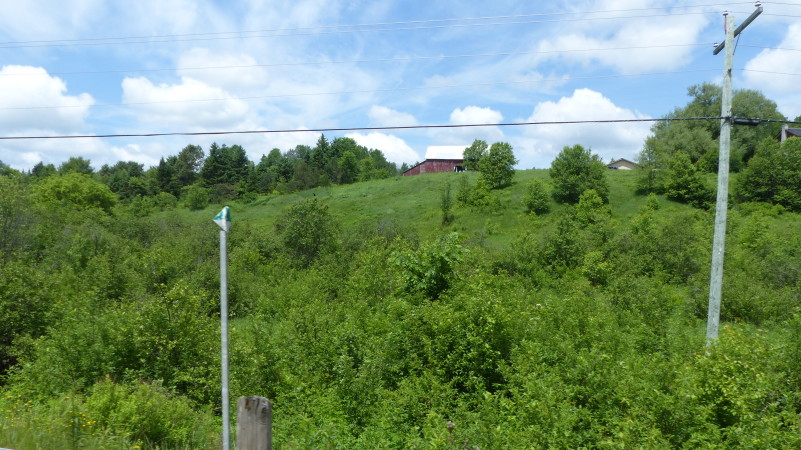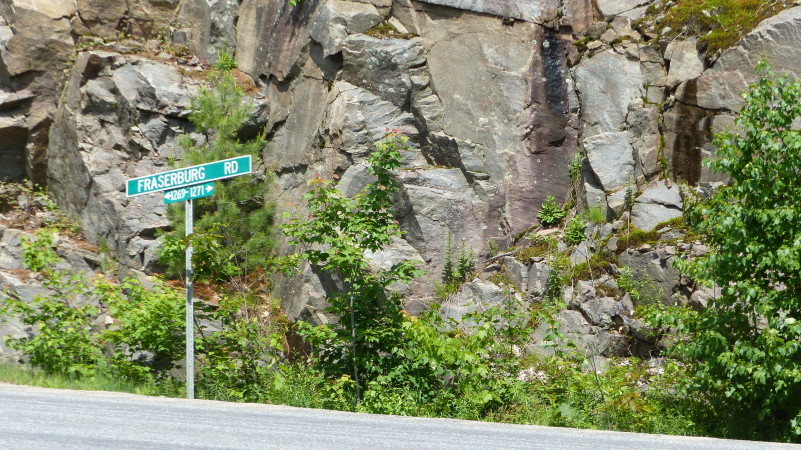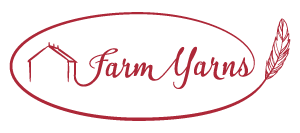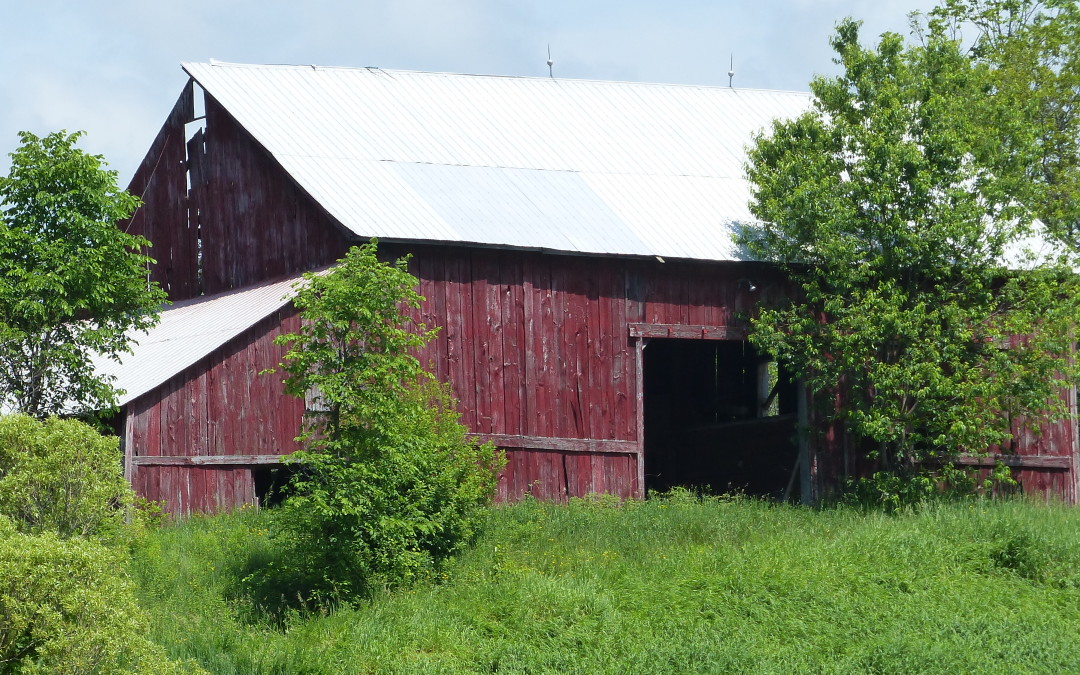Introducing the family farm in Muskoka where my husband, John, tasted summers of old-time farming.

John Sr. fishing at Wilson’s Falls
You would think that walking through hundreds of forested acres looking for delinquent milk cows would be intimidating for a kid from Toronto, yet John felt at home on his Great Uncle’s farm. He often walked alone through the wilderness, exploring animal trails and empty dens, gathering mushrooms for his family (yes they survived, he knew the difference), and fishing in Sharp’s Creek for brown or speckled trout to bring home for breakfast. To John, the fragrance of Muskoka pine, surprisingly combined with cow manure, vividly brings back the peace of the north country and those defining summers of work and play.
Winding along the Fraserburg Road from Bracebridge into cottage country, the farm could be seen high atop a ridge to the left. The bank barn and farmhouse could only be reached by foot or horse via a steep, narrow lane edged with trees. Cars and trucks had to park at the base of the hill by Sharp’s Creek, which complicated such things as farm work, grocery shopping, and Sunday visiting, to name a few. Just past the creek the driveway formed a “Y”, veering left towards the Burdett house or climbing right to the main homestead owned by the Dixon family. Their farm housed Holstein and Jersey dairy cows, pigs, sheep, laying hens, geese, ducks, Rudy the dog, and draft horses. From a neighbour they rented a 50-acre electrically fenced night pasture for the dairy herd. Their own 300 acres included roughly 50 acres each of hay and oats plus rough craggy acres of day pasture that were only fenced along the road. At the sides and back the cows could wander for miles onto other farms or deep into Crown land. Daisy wore a cowbell that jangled as she ate and helped the farmhands find the herd on evenings when they didn’t feel the need to come home on their own.

Remnants of the Bracebridge Farm seen from Fraserburg Road in 2015
John’s family were regulars at the Bracebridge farm. They crowded into a huge old station wagon – Mom, Dad, John, Susan, Brian, sometimes Granny B. and Aunt Mary – along with piles of suitcases, groceries, and enough snacks to last the journey north on old Highway 11. Their summer abode was actually Granny Burdett’s old two-story frame home, now sitting empty every winter. It stood on top of a hill about a half kilometre from the main farmhouse as the jay flies but was more like two miles by foot because of the steep hills and valleys. The family spent summer holidays there with John’s Dad driving back and forth from Toronto nearly every weekend. John Sr had the “Muskoka bug” as badly as John Jr.

Fraserburg Road’s craggy personality
The Dixon’s were hard people – not cruel or unkind but work hardened, matter of fact, no nonsense folk. Great Uncle Bill Dixon resembled the actor, Randolph Scott, slight and wiry with a deep voice that soothed many an upset dairy cow or agitated work horse. Unfortunately his mumblings often defied human ears. (Much to the dismay of John’s parents, the youngster quickly picked up the art of mumbling.) Great Aunt Kate, Granny B.’s sister, was an amazing cook, famous with the threshing gangs. Their daughter, Kathleen, was the baker of the family, excelling at pies, cookies, and cakes.
Even with year-round help from their faithful hired hand, George, the Dixons were struggling on their secluded farm with outdated horse-drawn equipment. Summers were the hardest – the huge garden needed tending and preserving, hay had to be cut and brought into the barn, grain had to be swathed and milled, lambs and calves were arriving and sometimes needed help. All this in addition to the regular chores of milking thirty cows by hand twice a day, taking the milk cans to the dairy, gathering and preparing eggs for sale, feeding and cleaning up after all the livestock. Bill Dixon needed more help especially since he was starting to slow down after seventy years of farming.
In 1962, the year John turned ten, he volunteered to stay for the entire summer as a farmhand. He had an inkling of what was involved – he had milked by hand, gathered eggs, cleaned stables, and searched for cows as an inquisitive family visitor. But now he was officially a hired hand like George and he slept in the farmhouse with the Dixons to be close to the barn for the 5 a.m. milking. With a token wage of twenty dollars to be paid at the end of the summer, John’s farmhand adventures began. He later discovered that the best payments were his priceless experiences.



Thoroughly enjoyed this one, Sue. You write a great picture. Looking forward to the “experiences”
Hi Jerry, what a great compliment, thank you! Definitely some unique stories coming up!